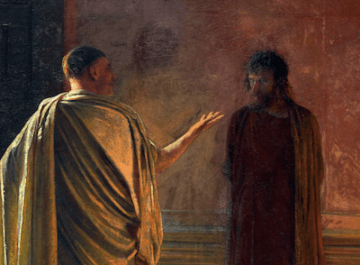 Steven Shapin in the LA Review of Books:
Steven Shapin in the LA Review of Books:
OF COURSE, there’s a Crisis of Truth and, of course, we live in a “Post-Truth” society. Evidence of that Crisis is everywhere, extensively reported in the non-Fake-News media, read by Right-Thinking people. The White House floats the idea of “alternative facts” and the President’s personal attorney explains that “truth isn’t truth.” Trump denies human-caused climate change. Anti-vaxxers proliferate like viruses. These are Big and Important instances of Truth Denial — a lot follows from denying the Truth of expert claims about climate change and vaccine safety. But rather less dangerous Truth-Denying is also epidemic. Astrology and homeopathy flourish in modern Western societies, almost a majority of the American adult public doesn’t believe in evolution, and a third of young Americans think that the Earth may be flat. Meanwhile, Truth-Defenders point an accusatory finger at the perpetrators, with Trump, Heidegger, Latour, Derrida, and Quentin Tarantino improbably sharing a sinful relativist bed.
I’ve mentioned some examples that take a crisis of scientific credibility as an index of the Truth Crisis. Though I’ll stick with science for most of this piece, it’s worth noting that the credibility of many sorts of expert knowledge is also in play — that of the press, medicine, economics and finance, various layers of government, and so on. It was, in fact, Michael Gove, a Conservative British MP, once Minister in charge of the universities, who announced just before the 2016 referendum supporting Brexit that “the people in this country have had enough of experts,” and, while he later tried to walk back that claim, the response to his outburst in Brexit Britain abundantly establishes that he hit a nerve.
More here.
